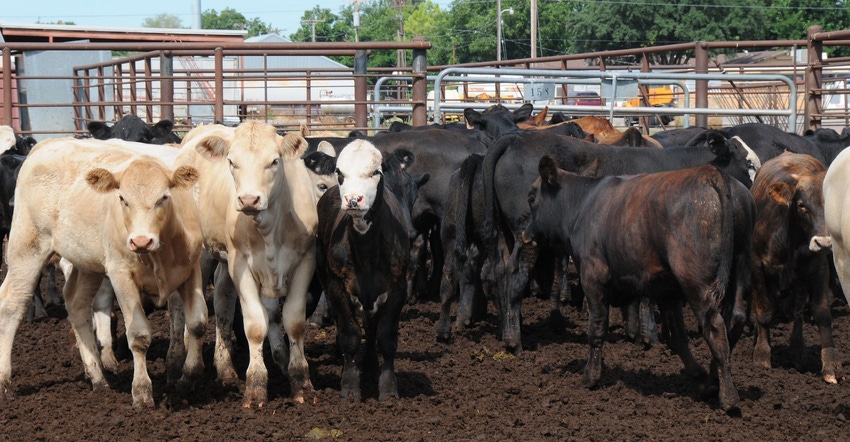Bipartisan Optimizing the Cattle Market bill introduced in House similar to Nebraska Sen.Deb Fischer’s bill to increase cattle market price transparency.

Cattle producers have long witnessed the decline of negotiated fed cattle trade. New legislation – Optimizing the Cattle Market of 2021 – introduced in the House by Rep. Vicky Hartzler, R-Mo., and Rep. Emanual Cleaver, D-Mo., enables mechanisms for greater price discovery and transparency within the cattle market, while equipping producers with more tools and useful information to succeed.
The action also comes on the heels of a bipartisan letter from House legislators and is the latest result of a recent groundswell of bipartisan, bicameral attention into the need to return market leverage to the side of cattle farmers and ranchers and address the startling price disparity between live cattle and boxed beef.
“America’s families are paying more for meat at the grocery store while rock bottom prices are paid to farmers. Ranchers can’t continue to lose money on the cattle they work hard to raise. Farmers and ranchers have legitimate questions, and this legislation takes important steps toward ensuring they have fair access to markets and are fully informed on pricing,��” says American Farm Bureau Federation President Zippy Duvall.
If enacted, the bill would direct the USDA to create a cattle formula contracts library and increase the reporting window for "cattle committed" from seven to 14 days. These measures would increase transparency in the industry and improve the opportunity for robust price discovery. The bill seeks to address similar goals as S. 543 introduced by Senator Deb Fischer, R-Neb.
While the use of formulas and grids help cattle producers manage risk and capture more value for their product, these methods depend upon the price discovery that occurs in the direct, buyer-seller interactions of negotiated transactions. The National Cattlemen’s Beef Association says current academic research has shown more negotiated trade is needed to achieve “robust” price discovery within the industry.
“America’s producers continue to face challenges in the cattle market, particularly in terms of external market disruptions and the fading COVID-19 pandemic,” Hartzler says. “This legislation aims to usher in transparency improvements and restores accountability in the industry to lift up these struggling sectors and embark on a new chapter of progress for our cattlemen and women.”
Related: Livestock groups unite on need to address cattle markets
Specifically, this legislation requires the secretary of agriculture, in consultation with the chief economist, to establish regionally sufficient levels of negotiated cash and negotiated grid trade within 2 years of enactment and to consider stakeholder input through a public comment period. Consideration must also be given to peer reviewed economic research from land grant universities.
Packers include only federally inspected cattle processing plants that slaughter an average of 125,000 head of cattle per year (roughly 500 head per day) during the prior five years. These minimums may be weekly or another periodic basis, must account for black swan events, and must be reviewed every two years. After three years, a cost-benefit analysis must be done to determine the operation and effect of regional mandatory minimums.
The legislation mandates that a packer report the number of cattle, organized by cattle type, scheduled to be delivered for slaughter each day for the next 14 days for USDA to make available to the public.
The bill also expresses the sense of Congress that there is a need for expedited reauthorization of USDA’s Livestock Mandatory Reporting program, including base prices subject to the same reporting requirements as negotiated cash and the creation of a contract library.
Finally, it directs USDA to provide educational outreach activities for producers on how to best utilize the library.
“The Livestock Marketing Association supports efforts to improve price discovery and competition while allowing producers to receive fair market value for fed cattle as well as all other cattle in the supply chain,” said Livestock Marketing Association President Larry Schnell.
“Beef producers have been continually receiving a smaller percentage of the retail beef price while meatpackers have multiplied their record profits. The Optimizing the Cattle Market Act would improve price transparency and reduce volatility in beef markets. Better information and more predictability will put cattlemen in a better position to make marketing decisions,” says Missouri Farm Bureau President Garrett Hawkins.
DOJ investigation
The focus on cattle markets was also heightened in recent days as a bipartisan group of 52 lawmakers called for the U.S. Department of Justice to complete their investigation into the meatpacking sector, and whether or not anticompetitive practices have contributed to a persistent imbalance in the cattle markets. The letter follows action from Sen. John Thune, R-S.D., and Rep. Dusty Johnson, R-S.D., who delivered a similar, bicameral letter to DOJ.
NCBA — with the support of 39 state cattle groups — also recently called for a swift conclusion to DOJ's investigation into the packing sector.
"Market volatility leaves our producers with extreme uncertainty, and this lack of stability and profitability is problematic for the entire beef supply chain," says NCBA Vice President of Government Affairs Ethan Lane. "The growing motivation in Congress to hasten the conclusion of the DOJ investigation and take action on the issues plaguing our industry's marketplace is the result of grassroots consensus among cattle producers.
“Across the country, in sale barns and state affiliate meetings, we're hearing the same frustration from our members — no matter how the pendulum swings, the leverage always seems to be on the side of the packers," Lane adds.
About the Author(s)
You May Also Like




.png?width=300&auto=webp&quality=80&disable=upscale)
